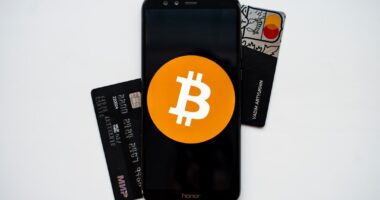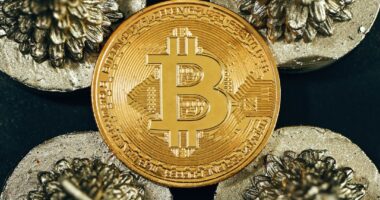Job NFTs (non-fungible tokens) are digital assets representing an individual’s professional profile on a blockchain. These unique tokens contain information about a person’s skills, experience, qualifications, educational background, certifications, and specific accomplishments. Job NFTs can be traded on NFT marketplaces, allowing individuals to showcase their professional abilities in a secure and verifiable manner.
Blockchain technology ensures the security and authenticity of Job NFTs, making them tamper-proof records of an individual’s professional identity. Potential employers or collaborators can easily verify credentials by checking the blockchain. Job NFTs can also incorporate smart contracts, enabling automated processes such as payment for freelance work or royalties for intellectual property use.
This innovative application of blockchain technology in human capital management offers new opportunities for personal branding and career advancement. It provides a secure and efficient way for individuals to showcase their skills and for businesses to identify and engage with talent. Job NFTs represent a novel approach to representing professional identities in the digital age, combining the benefits of blockchain security with the flexibility of digital asset management.
Key Takeaways
- Job NFTs are non-fungible tokens that represent ownership of a specific job or work opportunity on the blockchain.
- The benefits of Job NFTs for workers include increased job security, ownership of their work, and potential for passive income through royalties.
- Job NFTs have the potential to revolutionize the digital economy by providing a transparent and decentralized platform for job opportunities and work ownership.
- Job NFTs are changing the hiring process by allowing for direct peer-to-peer transactions between employers and workers, eliminating the need for intermediaries.
- The future of Job NFTs in the digital economy looks promising, with potential for widespread adoption and integration into various industries.
The Benefits of Job NFTs for Workers
Verifiable Professional Credentials
Job NFTs provide a secure and verifiable way to showcase one’s professional credentials and accomplishments. By creating a Job NFT that encapsulates their skills, experience, and qualifications, individuals can present a comprehensive and tamper-proof record of their professional identity to potential employers or collaborators.
Ownership and Monetization of Professional Identity
Job NFTs enable workers to take ownership of their professional identity and personal brand, as they have full control over the distribution and monetization of their digital credentials. Furthermore, Job NFTs can open up new opportunities for workers to monetize their skills and expertise. By tokenizing their professional profile, individuals can sell or license their Job NFT to interested parties, whether it be for freelance work, consulting services, or the use of intellectual property.
Streamlined Hiring Process and New Income Avenues
Job NFTs can streamline the hiring process by providing potential employers with a transparent and easily verifiable record of a candidate’s qualifications, saving time and resources for both parties. Additionally, Job NFTs create a direct and decentralized way for workers to market themselves and generate income from their abilities. Overall, Job NFTs empower workers to take control of their professional narrative and create new avenues for income generation in the digital economy.
The Impact of Job NFTs on the Digital Economy

Job NFTs have the potential to have a transformative impact on the digital economy by revolutionizing the way talent is identified, verified, and engaged with. In a landscape where remote work and gig economy are becoming increasingly prevalent, Job NFTs offer a novel solution to the challenges of verifying credentials and assessing skills in a decentralized and globalized job market. By creating a secure and tamper-proof record of one’s professional identity, Job NFTs can facilitate trust between employers and workers, enabling more efficient and transparent transactions in the digital labor market.
Moreover, Job NFTs can contribute to the democratization of opportunity by providing individuals from diverse backgrounds with a platform to showcase their skills and expertise on equal footing. This can help to mitigate biases in traditional hiring processes and create more inclusive pathways for talent identification and recruitment. Additionally, Job NFTs can foster innovation in the digital economy by enabling new forms of collaboration and value exchange based on verified skills and qualifications.
This can lead to the emergence of decentralized talent marketplaces and new models for compensating workers based on the value they bring to projects or organizations. Overall, Job NFTs have the potential to reshape the dynamics of talent management and employment in the digital economy, fostering greater efficiency, transparency, and inclusivity.
How Job NFTs are Changing the Hiring Process
Job NFTs are revolutionizing the hiring process by introducing a new paradigm for verifying credentials and assessing skills in a digital format. Traditionally, employers rely on resumes, cover letters, and references to evaluate candidates, which can be time-consuming and prone to biases. Job NFTs offer a more efficient and transparent alternative by providing a secure and tamper-proof record of an individual’s professional identity on the blockchain.
This allows employers to quickly verify the authenticity of a candidate’s qualifications and experience, streamlining the initial screening process and reducing the risk of fraudulent claims. Furthermore, Job NFTs enable individuals to showcase their skills and accomplishments in a more comprehensive and dynamic manner than traditional resumes or portfolios. By tokenizing their professional profile, candidates can include verifiable evidence of their abilities, such as certifications, project outcomes, or endorsements from previous collaborators.
This provides employers with a richer understanding of a candidate’s capabilities and potential fit for a role, leading to more informed hiring decisions. Additionally, Job NFTs can facilitate direct engagement between employers and candidates through smart contracts, automating processes such as payment for freelance work or royalties for the use of intellectual property. Overall, Job NFTs are reshaping the hiring process by introducing greater efficiency, transparency, and depth in the assessment of talent in the digital economy.
The Future of Job NFTs in the Digital Economy
The future of Job NFTs in the digital economy is poised for significant growth and innovation as blockchain technology continues to mature and adoption increases. As more individuals recognize the value of creating a digital representation of their professional identity through Job NFTs, we can expect to see a proliferation of tokenized skills and qualifications across various industries and job functions. This will lead to the emergence of decentralized talent marketplaces where individuals can buy, sell, or license their Job NFTs for freelance work, consulting services, or intellectual property usage.
Moreover, as smart contract functionality becomes more sophisticated, we may see the automation of talent management processes such as recruitment, onboarding, and performance evaluation through Job NFTs. This could lead to more seamless and transparent interactions between employers and workers in the digital labor market. Additionally, as the concept of Web3 gains traction, we may see the integration of Job NFTs with other decentralized applications (dApps) related to education, training, or project collaboration.
This could create new opportunities for individuals to acquire or demonstrate skills in a verifiable manner while engaging in decentralized work arrangements. Overall, the future of Job NFTs holds great promise for reshaping how talent is identified, verified, and engaged with in the digital economy. As blockchain technology continues to evolve and new use cases for non-fungible tokens emerge, we can expect Job NFTs to become an integral part of how individuals manage their professional identity and pursue opportunities in an increasingly decentralized job market.
Potential Risks and Challenges of Job NFTs

While Job NFTs offer numerous benefits for workers and employers in the digital economy, there are also potential risks and challenges that need to be considered. One concern is the issue of privacy and data security related to storing sensitive professional information on a blockchain. As Job NFTs contain detailed records of an individual’s skills, experience, and qualifications, there is a risk that this information could be exposed or exploited if proper security measures are not in place.
Additionally, there may be challenges related to regulatory compliance and data protection laws when it comes to managing personal information through Job NFTs. Another potential risk is the emergence of fraudulent or misleading Job NFTs that misrepresent an individual’s qualifications or experience. As with any digital asset, there is a risk of counterfeit or tampered tokens being circulated on NFT marketplaces, which could undermine trust in the verifiability of credentials through this technology.
Additionally, there may be challenges related to standardization and interoperability of Job NFTs across different platforms or industries, which could hinder their widespread adoption as a reliable means of showcasing professional identity. Furthermore, there may be concerns related to the concentration of power within decentralized talent marketplaces that facilitate the buying and selling of Job NFTs. Without proper governance mechanisms in place, there is a risk that these platforms could become dominated by certain stakeholders or lead to unfair practices in talent acquisition.
Overall, while Job NFTs hold great potential for transforming how talent is managed in the digital economy, it is important to address these risks and challenges in order to ensure their responsible and equitable use.
How to Get Started with Job NFTs
For individuals looking to get started with Job NFTs in managing their professional identity and pursuing opportunities in the digital economy, there are several steps they can take to create and leverage these unique tokens effectively. The first step is to identify the skills, experience, qualifications, or accomplishments that they want to tokenize through a Job NFT. This could include obtaining relevant certifications or endorsements from previous collaborators that can be included as verifiable evidence within the token.
The next step is to choose a suitable blockchain platform or marketplace where they can create and manage their Job NFT. There are several platforms that specialize in creating non-fungible tokens for various purposes, including professional identity management. It is important to research these platforms carefully to ensure they offer robust security features and compliance with data protection laws.
Once an individual has created their Job NFT, they can begin marketing it to potential employers or collaborators through various channels such as social media, professional networking platforms, or specialized talent marketplaces that support NFT transactions. It is important to highlight the unique value proposition that their tokenized professional profile offers in terms of verifiability, transparency, and depth of information. Finally, individuals should stay informed about developments in blockchain technology and non-fungible tokens that could impact how Job NFTs are used in the digital economy.
This includes staying abreast of regulatory changes related to data protection laws or industry standards for tokenized credentials. By staying proactive and adaptable in how they leverage Job NFTs, individuals can position themselves at the forefront of this emerging trend in talent management. In conclusion, Job NFTs represent an exciting frontier in how individuals manage their professional identity and pursue opportunities in the digital economy.
By creating secure and verifiable tokens that encapsulate their skills and qualifications on a blockchain, workers can take ownership of their career narrative while offering employers a more efficient and transparent way to identify talent. While there are potential risks and challenges associated with this technology, its potential for reshaping how talent is managed in decentralized job markets is significant. As blockchain technology continues to evolve and adoption increases, we can expect Job NFTs to become an integral part of how individuals navigate their careers in an increasingly digitized world.
FAQs
What are Job NFTs?
Job NFTs are non-fungible tokens that represent ownership or proof of participation in a specific job or task within the digital economy. They are unique digital assets that are stored on a blockchain and cannot be replicated or exchanged on a like-for-like basis.
How do Job NFTs function in the digital economy?
Job NFTs function in the digital economy by providing a way to verify and authenticate a person’s skills, experience, and participation in specific tasks or jobs. They can be used to create a verifiable record of work history, achievements, and qualifications, which can be valuable for freelancers, remote workers, and employers.
What is the role of Job NFTs in the digital economy?
Job NFTs play a role in the digital economy by providing a decentralized and secure way to record and verify work-related information. They can help individuals showcase their skills and experience, while also enabling employers to verify the qualifications and track records of potential candidates.
How are Job NFTs created and managed?
Job NFTs are created and managed using blockchain technology, which ensures their authenticity and uniqueness. They are typically minted on a specific blockchain platform and can be managed through digital wallets or NFT marketplaces.
What are the potential benefits of Job NFTs in the digital economy?
The potential benefits of Job NFTs in the digital economy include increased transparency and trust in work-related transactions, improved verification of skills and qualifications, and the ability to create new opportunities for freelancers and remote workers. Additionally, they can help reduce the risk of fraud and misrepresentation in the job market.





